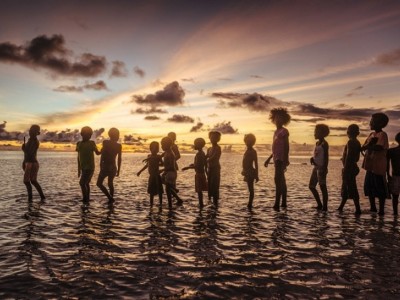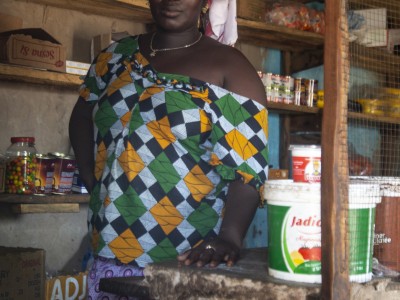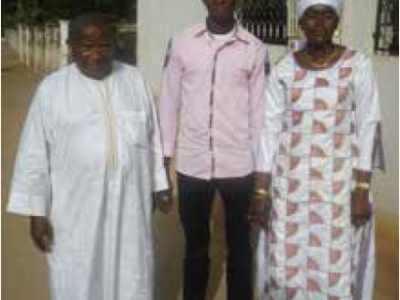Province of Pichincha: Reception, development and sustainable strengthening for an inclusive approach to the integration of people experiencing human mobility
Related Sustainable Development Goals and Global Compact for Migration Objectives
Summary
This project comes from the JMDI Phase II, a UN Joint Migration and Development Initiative, run in cooperation by IOM, UNDP, ILO, UN Women, UNFPA, UNITAR which took place from 2012 to 2017 and worked to contribute to the generation of synergies and institutional capacity for the Autonomous Decentralized Governments of the northern provinces of Ecuador in charge of promoting the implementation of the local legislation and public policies aimed at the protection and restoration of rights of people in situations of human mobility.
The Province of Pichincha, which covers the Ecuadorian capital city, Quito, is a major international port of entry and departure for many migrants and displaced persons. Indeed, the region of Pichincha is characterised by a wide array of individuals, including internal migrants, transiting migrants, immigrants, refugees and asylum seekers fleeing the violence in Colombia, and return migrants escaping the negative effects of the global financial crisis in other parts of the world. The migrants in this area typically encounter limited employment opportunities, rights abuses and discrimination – thereby putting them situations of vulnerability.
During this project, the Human Mobility Unit (HMU) in Pichincha was strengthened in order to improve the services it provides to migrants and displaced persons. This has contributed to enhancing the integration of migrants and displaced persons socially, culturally, economically and politically and paved the way towards their ability to develop themselves as well as contribute to society overall. The HMU was also supported to further mainstream migration into provincial and local planning at the municipal level for enhanced sustainability of migration governance. All of which has been recognised at the national level and awarded the ‘Public Good Practice Award’ for the ‘institutionalization of public policy on human mobility’ at the 2016 Exemplary Practical Awards. The project worked in the municipalities of Cayambe, Pedro Moncayo, San Miguel de los Bancos and Guayllabamba and the civil parishes of Calderón, Nayón and Chili.
Key objective
The objective of this case-study was to contribute to the generation of synergies and institutional capacity for the Autonomous Decentralized Governments of the northern provinces of Ecuador in charge of promoting the implementation of the local legislation and public policies aimed at the protection and restoration of rights of people in situations of human mobility.
Main activities
The main activities of this project ranged from
- HMU providing legal assistance, psychosocial support and reception services through a professional psychologist.
- Promoting economic inclusion by fostering entrepeneurship and labour insertion. Self-employment through micro-businesses support was set up and 10 individuals and 1 association were provided with technical support and assistance in developing sustainable business plans.
- Research was carried out in areas such as labour insertion and education in order to identify ways in which migrants and displaced persons struggle to exercise their rights because of discrimination and xenophobia. This was fed into the technical support provided by the HMU to the four municipalities of the region.
- GADPP activated a mechanism to collect and analyze data related to mental health services.
- Creation of awareness in and the generation of empathy in the local population was channeled through various activities including: training sessions, in which over 200 migrants and displaced person were made aware of their rights in Ecuador; the creation of the book "Life Stories”, which included testimonies and histories of migrants interviewed and their role as agents of development at the local level which was disseminated to the public; 10 radio stories produced on migrants’ and displaced persons’ testimonies allowing for the voice of migrants to reach out extensively across the general population for enhanced understanding; the creation of 5 micro-documentaries on the main stereotypes/stigmas about people exercising human mobility in the province to sensitize the general population about their experiences as well as their rights; and a publication of ten key messages conveyed through pictograms (in sticker and pin format), which were widely disseminated.
- HMU promotion of recognition and appreciation of the diversity and richness inherent to human mobility, fostering multiculturalism and awareness through migration data analysis.
Key successes or innovative factors, good practices and lessons learned (if available)
The key lessons learned from this project consist in:
- The inclusion of migrants and displaced persons facilitates their ability to be agents for development.
- Promoting multiculturalism and awareness can generate discourse on the topic in the local community.
- Inclusion of migrants and displaced persons facilitates their ability to be agents for development.
- Promoting multiculturalism and awareness can generate discourse on the topic in the local community.
Beneficiaries
The direct beneficiaries of this project were the authorities and public officials from the four Decentralized Autonomous Governments of the northern border and the Rights Protection Regional Networks in the four provinces. Indirect beneficiaries on the other hand included all people living in situations of human mobility in the four northern provinces.


